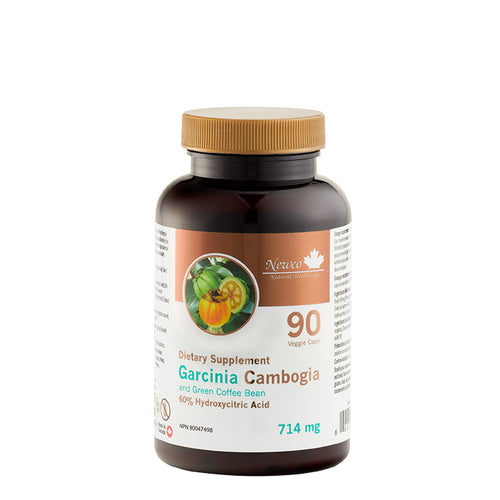You’ve got a hardcore gym session scheduled tonight — but you’re not feeling the love. The solution? Crank up your iPod for a better workout. That’s the result of a recent study that examined music’s impact on HIIT, or high-intensity interval training. “Our focus was to look at the psychological implications of music … given how intense HIIT is, could music make it more psychologically enjoyable and could it also enhance physical output during the HIIT protocol?” asks author Matt Stork, a Ph.D. student at McMaster University in Canada. “We found that moderately active people who listened to self-selected music during HIIT not only enjoyed the exercise more, but they worked harder physically, as well.”
Research has proven that music doesn’t just reduce your perceived exertion or your sense of how hard you’re working — it can actually lead to a more intense workout (and more calories burned overall). Here’s the scoop on how music affects your workout — and how to use music to get more from your time in the gym.
Music: A Compelling Distraction
Dr. Costas Karageorghis, a professor in sport psychology at Brunel University London, has been studying music’s impact on exercise performance for years. “One of the most important findings from our body of research is that a well-selected playlist can modulate how you feel even at relatively high exercise intensities,” Karageorghis says. “This means that at intensities at which people are likely to derive significant cardio-respiratory benefits, music has the power to help them deal with the characteristic discomfort associated with working hard.”
How does music do this? In short, by distracting you. “The mediator between the workload people put into the exercise and the feeling of exertion they have, is the level of attention,” says Gershon Tenenbaum, Ph.D., a professor of sports and exercise psychology at Florida State University. When you’re exercising at an easy or moderate pace, you may daydream or veg out. Take it up a notch, though, and you’ll be more aware of what’s happening inside your body and less likely to be distracted from the effort, or pain, you’re starting to feel.
But the latest research, like Stork’s study, shows that music can help boost performance even at high-intensity efforts. And it helps boost mood, as well — in Karageorghis’ studies, music was found to lift mood by between 10 to 15 percent compared to working out sans tunes. “A suitably motivational playlist can help to ‘color’ the symptoms of exercise-related fatigue, like breathlessness and a beating heart, in such a way that they are interpreted in a more positive manner,” he says. That means you may finish your Tabata workout feeling empowered and exhilarated, not exhausted.
Power Up Your Playlist
So now that you know how music can affect you, how can you make the most of it? First, be sure to choose music you like. Studies show that people who use self-selected music (as opposed to having music chosen for them) report a more positive experience during and after exercise, Tenenbaum says.
Creating different playlists can help you achieve your goals, as well. “Always try to marry your playlist with the nature of your workout and the mental state that you wish to achieve,” Karageorghis says. He suggests fast, rhythmical, bass-driven music to psych yourself up before a weight-training session, for example.
While the melody catches your attention, the rhythm, or beat, of the music is particularly important in terms of motivation. Music that is between 125 and 140 BPM, or beats per minute, is your best bet for continuous activity. (Meghan Trainor’s All About That Bass clocks in at 134 BPM.) If you’re warming up, cooling down or stretching, choose music with a slower tempo, like 80 to 115 BPM.
Wondering just what tempo your favorite song is or searching for new and motivating playlists? Check out Spotify, who Karageorghis consults for. “Spotify is a great resource for users looking to power up their workouts,” he says. “You can easily find curated playlists for workouts ranging from yoga to cycling to Tabata, or you can build your own perfect workout playlist from Spotify’s 30 million-plus tracks.”
Looking to boost your workout even more? Choose a song with a slightly higher BPM than you usually listen to, Karageorghis suggests. You’ll work harder but with a minimal difference in effort.
But while music is a great addition to your workout, opt for music-free sessions, as well, a third of the time. “Like any mild stimulant or mood-altering substance, the effects of music are reduced with prolonged and consistent use. Therefore, it’s important to not use it on occasion,” Karageorghis says. Tuning in to your body, not your playlist, will help you focus on getting the body you want.
Music’s Impact on Overall Health
Music doesn’t just affect your workouts; it can have a positive impact on your overall health, as well. Consider music’s proven benefits from recent research:
• Music decreases systolic and diastolic blood pressure, and heart rate.
• Playing music helped stroke patients more quickly recover their verbal memory and focused attention.
• Music is an effective way of lessening anxiety pre-surgery.
• Music can help reduce pain and ease depression.
Written by Kelly James Enger for Oxygen Magazine and legally licensed through the Matcha publisher network. Please direct all licensing questions to legal@getmatcha.com.





